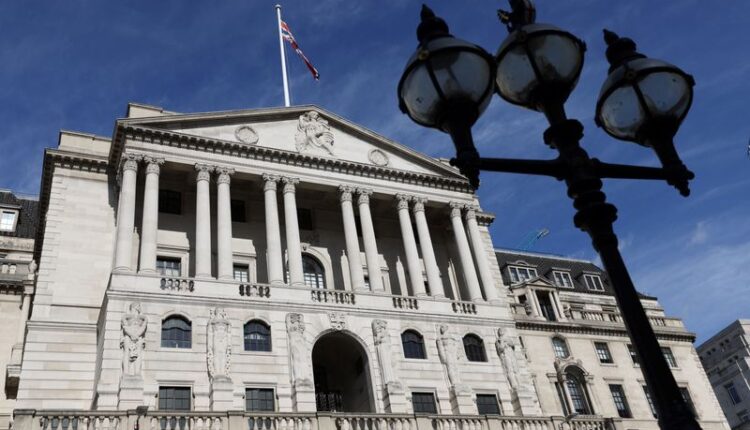Bank of England piles pressure on money market funds to bolster liquidit
By Huw Jones and David Milliken
LONDON (Reuters) -The Bank of England said on Tuesday that money market funds should hold “significantly” higher amounts of liquid assets to cope with market volatility after the sector struggled with a “dash for cash” during the COVID-19 pandemic.
The BoE’s Financial Policy Committee said the 250 billion pound ($300 billion) sterling money market funds sector, widely used by companies for day-to-day funding and parking cash overnight, needs to be more resilient to shocks.
“Significantly more liquid assets than currently required is likely to be the most effective way to increase MMF resilience and so reduce risks to financial stability,” the BoE’s Financial Policy Committee said in a statement.
The FPC said staff analysis suggests that assets which mature with 7 days or less should make up at least 50% to 60% of a fund’s total assets. This compares with current levels of 45% to 55% across the sector.
MMFs are part of the wider non-bank sector, which has grown since the 2008 global financial crisis to represent about half the world’s financial assets, but is more opaque and complex than banking, making it harder for regulators to spot risks and how contagion could unfold.
Central banks had to inject liquidity in markets as MMFs struggled in the face of heavy redemptions when economies went into pandemic lockdowns in March 2020, but the funds industry has said many other parts of the market were under strain too at the time.
The BoE, along with global watchdogs like the Financial Stability Board and U.S. Securities and Exchange Commission, is becoming increasingly concerned about the need to tackle the opacity and liquidity vulnerabilities in the sector.
Britain will need to cooperate with the European Union when regulating MMFs given that most sterling-denominated MMFs are listed in EU centres like Luxembourg.
The Bank pushed through tougher liquidity rules for liability-driven investment funds (LDI), used by pension funds, earlier this year after it had to intervene in the sector last September.
In a special report on fleshing out the FPC’s approach to assessing risks in market-based finance, it said it could enhance and review how it prioritises risk assessment.
It could also consider “the potential role for macroprudential tools”, including where additional resilience standards may be needed for non-banks, a vast sector that includes investment funds, hedge funds, private equity, pension funds and insurers.
The non-bank sector has long pushed back against being treated like banks with rules such as capital buffers, and regulators are largely focusing on bolstering liquidity.
($1 = 0.8155 pounds)

